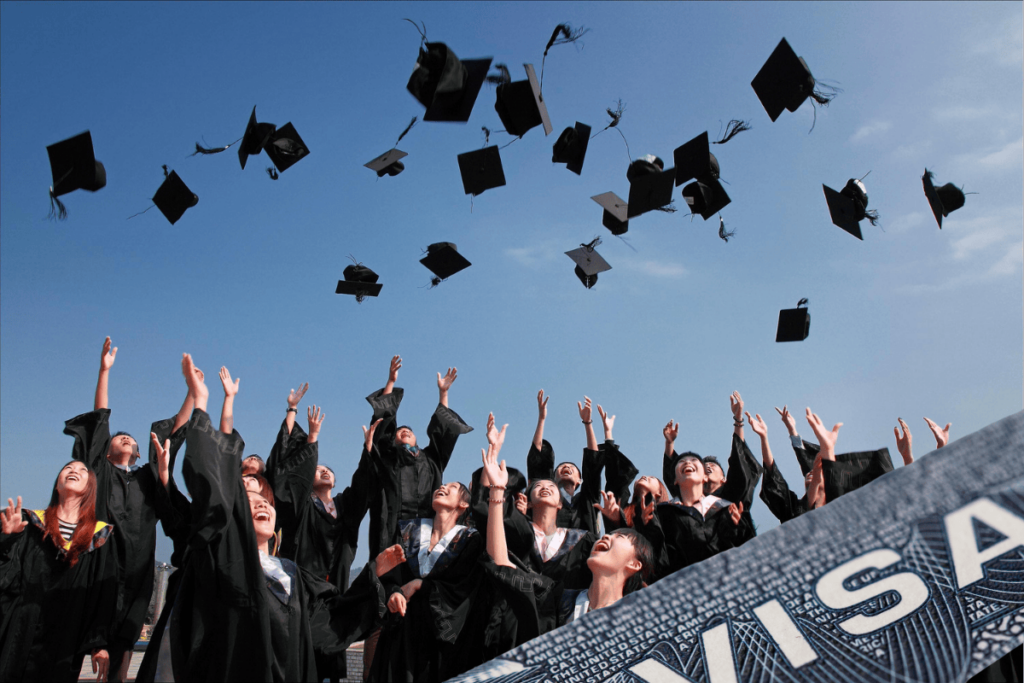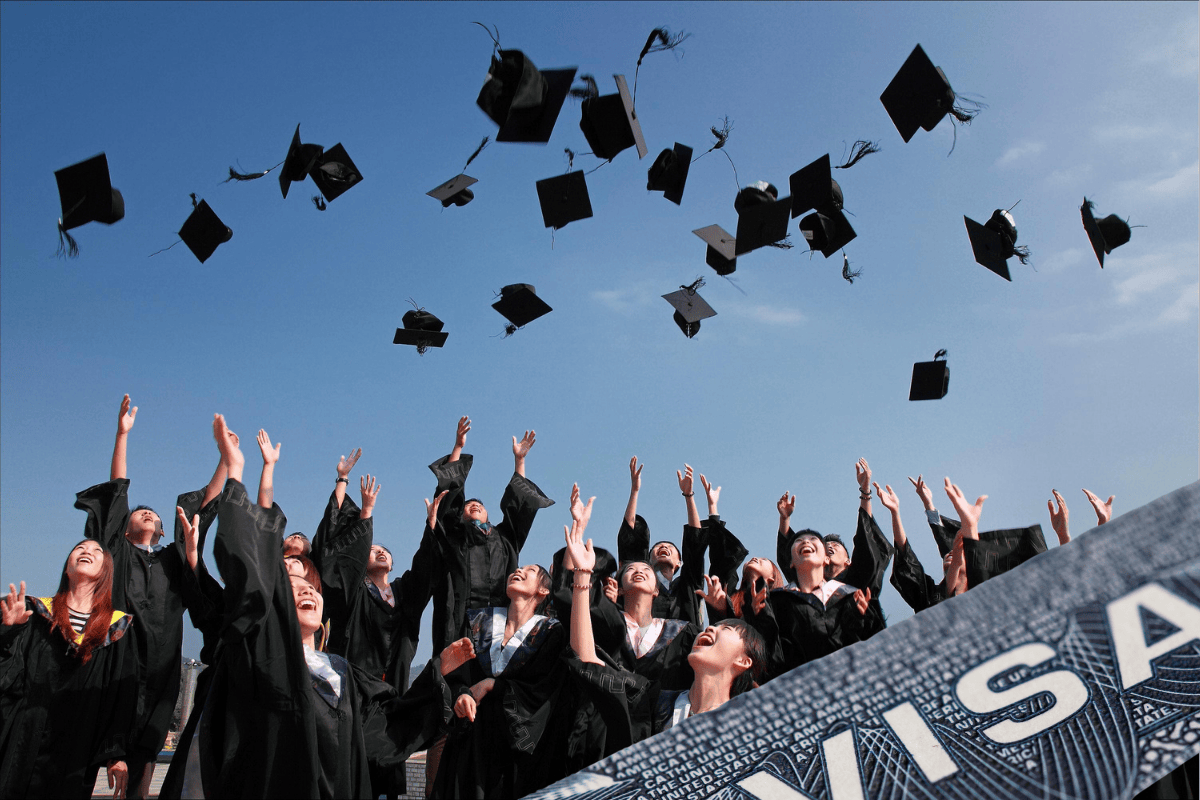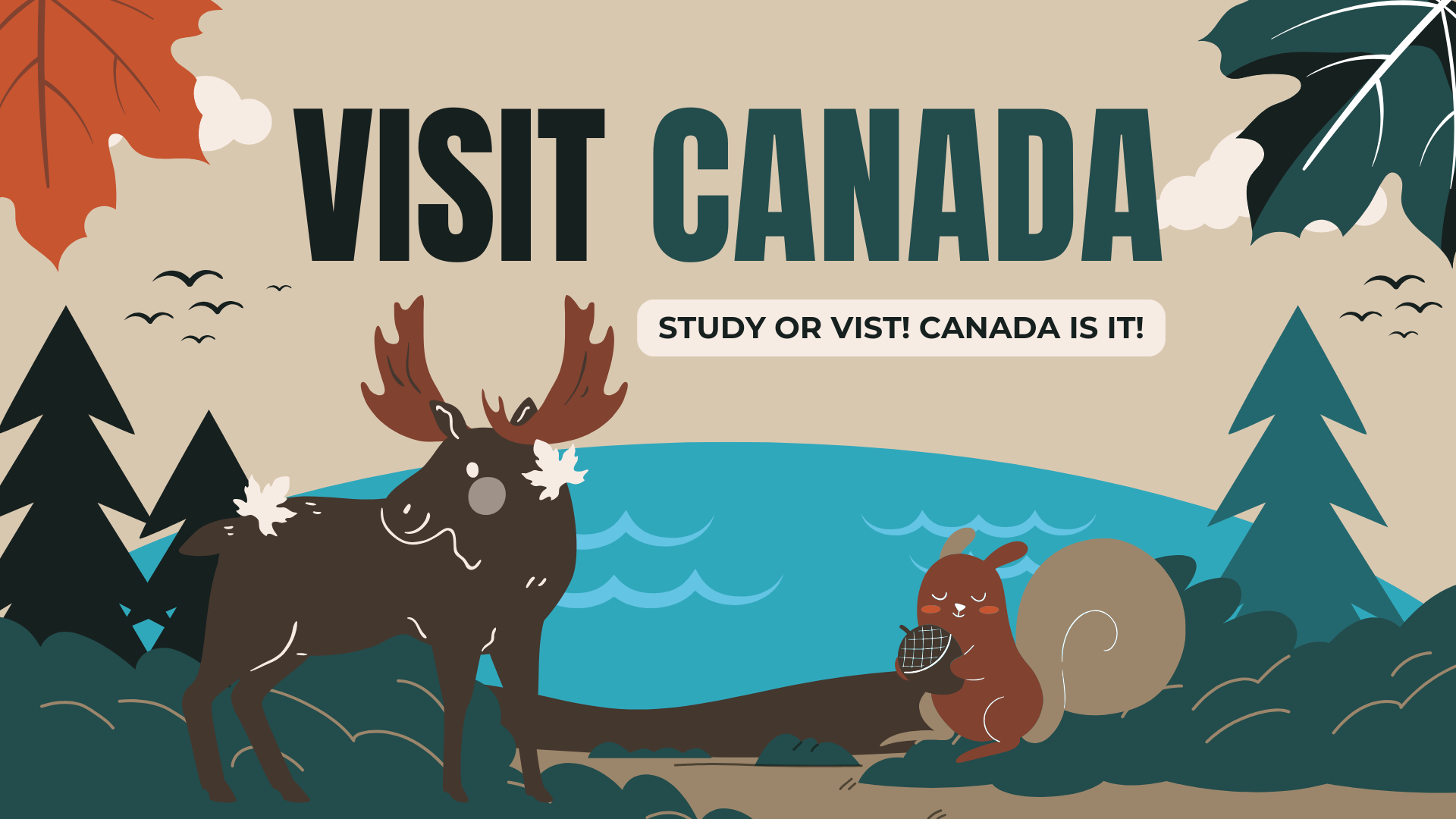
Studying abroad is an exciting opportunity for personal growth, academic development, and career enhancement. One of the first steps in this journey is securing a student visa for your desired destination country. Whether you're planning to study in the United States, the United Kingdom, Canada, Australia, or any other country, obtaining a student visa is a crucial step to make your dream a reality.
In this guide, we will explore the essential steps and documents required for student visa applications, how to apply for a student visa, and how to get a study visa. If you want to know more about the student visa processing time, the documents needed, and how to ensure a smooth visa application process, keep reading!
What is a Student Visa?
A student visa is an official document issued by a country's immigration authority that allows a foreign national to study at an accredited educational institution in that country. It serves as permission for you to stay and study in that country for a specified period, typically linked to the duration of your academic program.
The visa approval process is not automatic, and you must follow a specific procedure to apply. The exact process and requirements vary by country, but generally, you will need to show proof of enrollment at an accredited institution, demonstrate sufficient financial means, and provide supporting documentation to confirm your eligibility.
How to Apply for a Student Visa
The process of how to apply for a student visa may vary depending on the country you are applying to. However, the following steps are common to most student visa applications:
1. Choose Your Study Destination
The first step in applying for a student visa is deciding where you want to study. Each country has its own set of rules and requirements for student visa applications, so it’s essential to understand the application process and visa eligibility requirements of the destination country.
Once you have chosen a country, research its educational institutions, programs, and specific student visa requirements. Some countries, like Canada, the UK, and the US, have different visa categories based on the level of study (undergraduate, graduate, etc.), so it's important to understand which type of visa you need.
2. Get Accepted into a Recognized Educational Institution
Before you can apply for a student visa, you need to be accepted into an accredited educational institution in the country where you plan to study. Most countries require proof of enrollment as part of the documents required for student visa applications. Be sure to have the admission letter from the institution, which confirms your acceptance into the program.
3. Check the Student Visa Requirements
Once you’ve received your acceptance letter, check the specific documents required for study visa or student visa application for the country you're applying to. Requirements differ from country to country but often include:
- Valid Passport: Your passport should be valid for at least six months beyond the planned study period.
- Admission Letter: A letter of acceptance from your educational institution.
- Proof of Financial Support: Most countries require you to show that you have enough funds to support your tuition fees and living expenses.
- Language Proficiency: You may need to provide proof of English or French language proficiency, such as IELTS, TOEFL, or other recognized tests.
- Medical Certificate: Some countries require a medical examination to ensure you’re in good health.
- Police Clearance Certificate: Certain countries require you to provide proof of no criminal record.
- Visa Application Form: Completed visa application forms, which are usually available online or at your local embassy.
- Visa Fee: Payment of the visa application fee is often required.
4. Complete the Visa Application Form
Once you have all the necessary documents, you will need to complete the visa application form. Many countries offer online applications, while others require you to submit paper applications. Make sure to fill out the application accurately, as any discrepancies may delay your visa processing.
For online applications, you may need to create an account on the respective immigration website or embassy portal. After creating the account, you can fill out the necessary details, attach supporting documents, and pay the application fee.
5. Schedule and Attend the Visa Interview (If Required)

Some countries, like the US and Canada, may require an interview as part of the visa application process. The interview may take place at the country’s embassy or consulate, where you will need to present your documents and answer questions regarding your academic background, reasons for studying abroad, and future career plans.
It’s important to prepare for the interview by reviewing your application, understanding your study program, and being ready to explain why you chose to study in that particular country. A well-prepared interview can increase your chances of securing the student visa.
6. Wait for a Decision
After submitting your application and attending the interview (if required), the visa processing begins. Student visa processing time can vary depending on the country and the volume of applications, but typically, it takes between a few weeks to a few months. During this time, the embassy or consulate will process your documents, verify your eligibility, and conduct background checks.
Some countries, like the US and Canada, allow you to track the status of your visa application online, so you can stay informed about the progress.
7. Receive Your Student Visa
Once your visa is approved, you will receive your student visa, which will allow you to enter and study in the country. The visa will indicate the duration of your stay and the conditions of your study permit. Be sure to read the visa details carefully and adhere to the guidelines provided.
Documents Required for Study Visa
The documents required for student visa applications can vary from one country to another, but here are some common documents that most countries will ask for:
- Valid Passport: A passport with at least six months of validity.
- Visa Application Form: Completed application form.
- Proof of Admission: Acceptance letter from an accredited educational institution.
- Financial Documents: Bank statements, scholarship offers, or affidavits of financial support to show you can cover your tuition fees and living expenses.
- Language Proficiency: Proof of proficiency in the language of instruction, such as IELTS or TOEFL scores.
- Medical Certificate: Depending on the country, a health check-up may be required.
- Police Clearance Certificate: To verify that you have no criminal history.
- Visa Fee Receipt: Proof of payment of the visa application fee.
Student Visa Processing Time
Student visa processing time varies from country to country and is influenced by factors like the volume of applications, the time of year, and your specific case. Typically, the processing time is as follows:
- Canada: 2-4 weeks
- USA: 3-5 weeks
- Australia: 4-6 weeks
- UK: 3 weeks
It’s crucial to apply well in advance to avoid any delays in receiving your visa. Be sure to check the specific processing time on the official immigration website of the country you are applying to.
How to Get a Student Visa: Tips for Success
- Start Early: The application process can take time, so begin as early as possible to avoid last-minute stress.
- Complete Your Documents: Make sure all your documents are complete, valid, and translated (if required) before submission.
- Prepare for the Interview: If an interview is required, practice your answers, and make sure you can explain why you want to study in the chosen country.
- Stay Informed: Regularly check the visa processing status online and stay in touch with the relevant embassy or consulate.
Conclusion
Obtaining a student visa is an essential step for studying abroad. The process may seem complex, but with proper preparation and attention to detail, it becomes much more manageable. By gathering the necessary documents required for study visa, filling out the application form correctly, and attending the interview (if required), you will significantly increase your chances of success.
Remember, the student visa processing time can vary, so always apply well in advance. Once your visa is approved, you will be all set to embark on an exciting educational journey abroad. Best of luck with your student visa application, and may your study abroad experience be everything you dream of!



